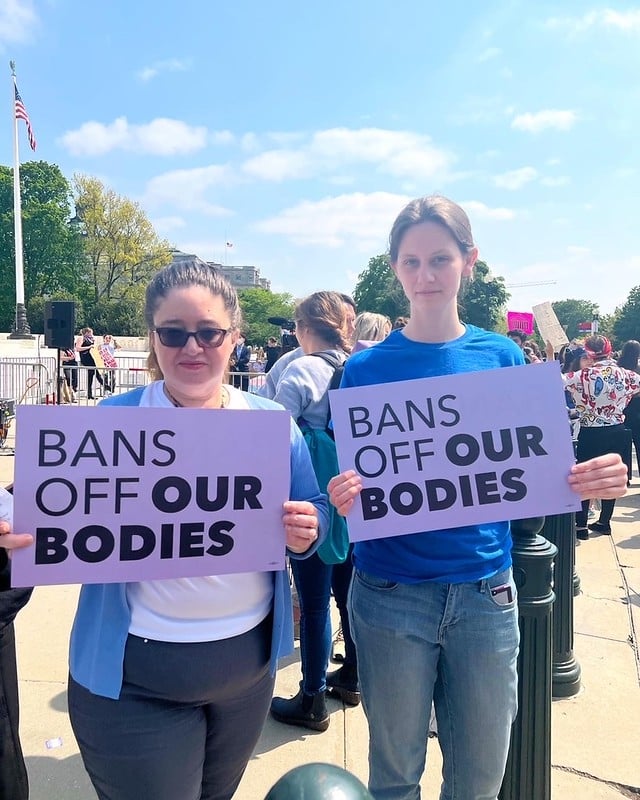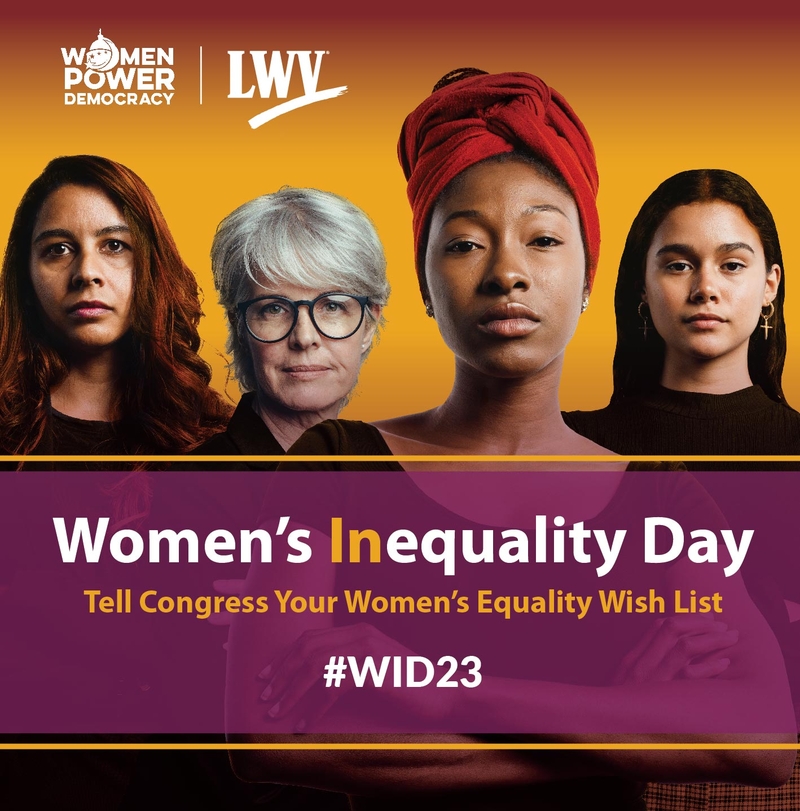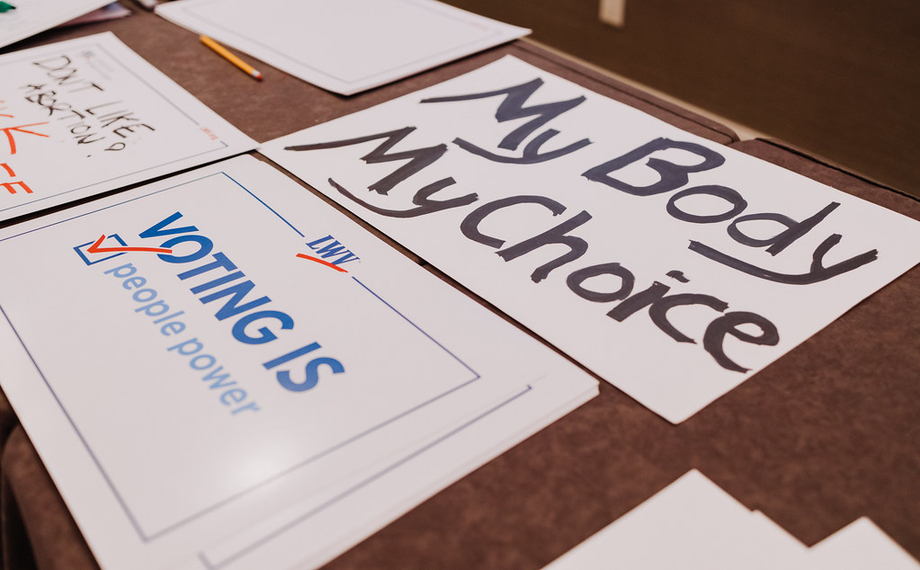Democracy is a promise.
It is the promise we made to ourselves as we embarked on this great American experiment.
It is the promise to be a nation that is governed by the people and a promise that every law drafted and rule made by our selected representatives will reflect that will.
It is also the promise that all voices will be heard and our democratic rights will be respected — not rejected — by those who have power only because the people have entrusted them with it.
Last year’s decision to overturn the constitutional right to abortion broke this promise. As of May 2023, the Supreme Court’s ruling in this case, Dobbs v. Jackson Women’s Health Clinic, is considered “a bad thing” by 61% of the US population. This reflects growing support for abortion post-Dobbs, as the percentages of Americans who consider abortion “moral” and believe it should be legal in all circumstances have hit all-time highs.
,

,
At the same time, anti-abortion legislation is active across the nation.
It is clear that when it comes to bodily autonomy, leaders like the ones who overturned the right to abortion are not aligned with the American people. And decisions that go against the people’s will can only fracture our nation.
There is only one way we can ensure that the promise of democracy is kept: by fervently participating in our nation’s political processes, ensuring our voices are heard.
In previous blogs, I wrote about the medical and emotional impact of anti-abortion laws.
Throughout this blog, I will explore why raising women’s voices through public office and the power of the vote is essential to both our reproductive rights and our democracy as a whole. Please note that while I am focusing on people who identify as female because of the data available, my statements also apply to nonbinary and transgender people who experience pregnancy — whose stories also deserve to be heard.
How Electing Women Impacts Reproductive Rights
One way to ensure that the rights of women and those who can become pregnant are better represented is by electing individuals from those communities.
Decisions like those in Dobbs are less surprising when you look at who is leading our nation. Currently, only 31% of our statewide elected officials identify as women – a “record high.”
Unsurprisingly, I found that as of August 1, 2023, states identified as having the “most restrictive” laws around abortion rights and access have a significantly lower percentage of female statewide elected officials — 22.5% compared to the 31% nationwide average.
Meanwhile, states with “very” or the “most” protective laws around abortion rights and access have more female elected officials (38.62%).
,

Women's Inequality Day
Tell Congress your women's equality wish list, including:
- Restoring our reproductive rights;
- Passing federal voting rights legislation; and
- Adding the Equal Rights Amendment to the Constitution.
,
Simply put, more women in office means more reproductive rights.
Unfortunately, decisions like Dobbs will only make it harder for those who can experience pregnancy to participate in politics. The medical, financial, and social demands of pregnancy, childbirth, and child-rearing (the latter of which still disproportionately impacts women) already make it challenging for women to participate in the workforce; running a political campaign or holding public office are just as, if not more, inaccessible.
Further, living in a state where one’s bodily autonomy isn’t respected decreases one’s power in their community; when your laws treat you as inferior, your peers may come to see you that way as well.
It is crucial that we make running for and holding office more accessible for those who can become pregnant. This may involve supporting organizations like She Should Run, a nonpartisan nonprofit dedicated to increasing the number of women running for public office. It may mean using art, advocacy, or storytelling to expand our view of what an elected official can and should look like. It may even mean running ourselves.
How Women Voters Impact Reproductive Rights
It has been said before, but I will say it again – getting women to the polls is crucial in the fight for reproductive rights.
Women support abortion rights at a significantly higher rate than men, with two-thirds of women saying that abortion should be legal in most or all cases as of June 2022. Women are also more likely to disprove of the Dobbs decision, especially in certain communities; one study showed 62% of white women disagreeing with the decision, as opposed to 47% of white men, while 36% of Republican women disapproved, as opposed to 23% of Republican men.
,

,
It makes sense. The people who most frequently use their voices to support reproductive rights are the people most impacted by them. We cannot rely on people who cannot become pregnant to speak for us. We must do it ourselves.
However, we must face the fact that many women still face voter suppression, particularly Black and brown women, women with disabilities, women with limited financial resources, and members of the LGBTQIA+ community. Forced parenthood can only exacerbate this, making it more difficult for people to go to the polls due to the demands of pregnancy and childcare.
Women can change our country with our votes. But for us to do so, we also need our votes to be protected.
Supporting people who can become pregnant means fighting for a world where equality of the sexes is real and recognized. There are many ways to do this, but I am focused on these three in particular:
-
Passing voter legislation that protects a woman’s right to vote;
-
Adding sex-based equality to the Constitution with the Equal Rights Amendment; and
-
Restoring our reproductive rights.
If you agree with me, I urge you to join our Women’s Inequality Day campaign by signing our petition to Congress.
Let the people who were granted the right to represent you via your vote know that equality of the sexes is necessary to keeping the promise of democracy – and that such equality is not achievable without reproductive freedom.
We’re at a turning point in our history. And to me, it all hinges on this: our leaders must act according to the will of the people — and they must realize those people include women.